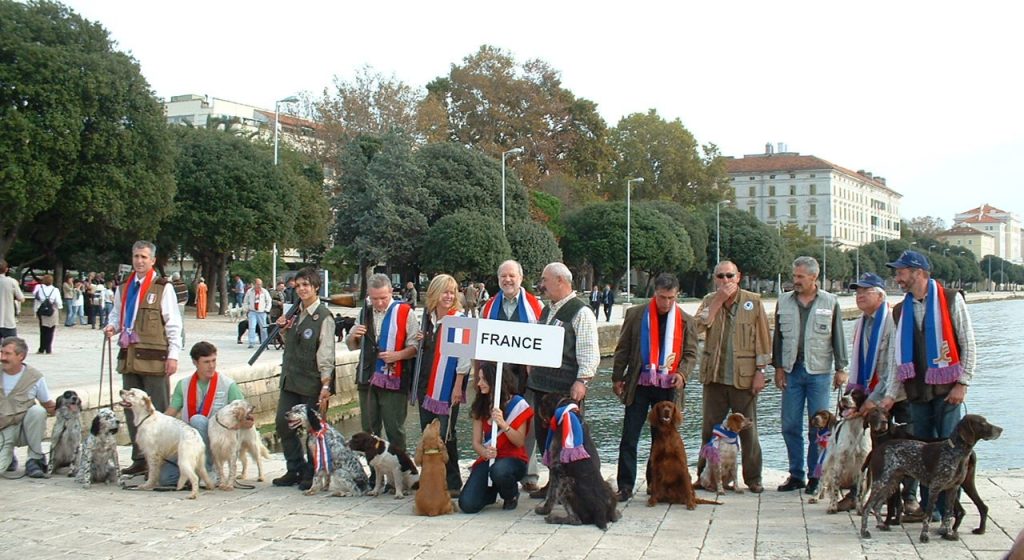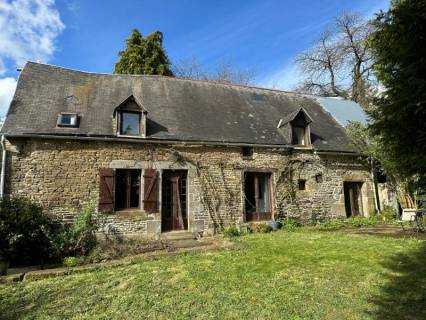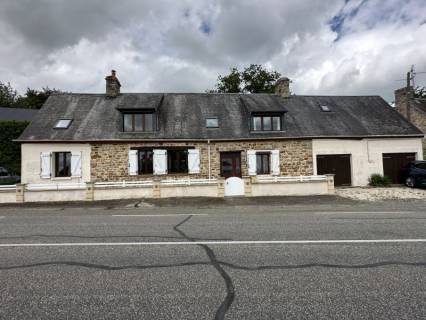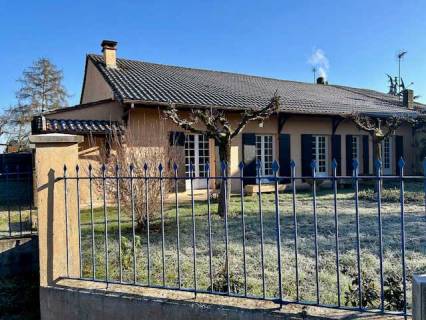Nov 232020
Whether you like it or not, hunting, or La Chasse, is a popular and much-valued way of French life, with over 1.5 million holding a hunting licence, and an estimated 37,000 new licences issued each year. So what are the general rules about hunting, and how do you go about getting a licence? We’ll also meet Jess Gray, an English woman who was such a proficient hunter, she became a national champion, even representing France at international level.
When Who and Where?
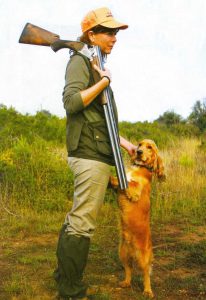 Hunting seasons are managed by each department, but run roughly between September and February, and can take place on any day of the week. While there have been campaigns for a ban on Sunday hunting, along with Wednesday afternoons, Sundays remain particularly popular, as are the hours of dawn and dusk.
Hunting seasons are managed by each department, but run roughly between September and February, and can take place on any day of the week. While there have been campaigns for a ban on Sunday hunting, along with Wednesday afternoons, Sundays remain particularly popular, as are the hours of dawn and dusk.
While hunting in the UK is considered an expensive hobby for the upper classes, hunting in France is dominated by the working classes and pensioners, although it’s increasingly being taken up by professionals and women. One of them is British resident Jess Gray, who moved to St Genies de Fontedit, in the Languedoc Roussillon, in 2002, tempted by the warm climate, wide sandy beaches, the mountains and open planes of vineyards.
A keen clay pigeon shooter in the UK, she decided to continue her passion in her new life in France.
“When I moved to France in May I joined the local club (called ball trap here). I made friends and was warmly welcomed into the group. I was surprised though at the end of August that they closed the club as they spend the winter months hunting. So I spent two winters not shooting, and missing my hobby, and decided to take up hunting.”
Getting A License
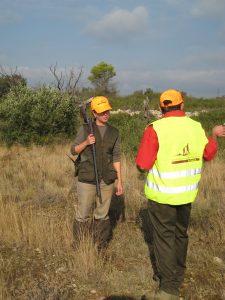 France has strict hunting laws, and hunters need to obtain a valid licence, or Permis de Chasser, which is then valid for life, unless rescinded for careless practice or health problems. This involves registering with your local hunting federation, Fédération Départementale des Chasseurs, attending a mandatory preparatory course, and passing a theory exam, followed by a practical. Both these exams are organised by the national hunting and wildlife agency, ONCFS, or Office National de Chasse et de la Faune Sauvage, and are held year round.
France has strict hunting laws, and hunters need to obtain a valid licence, or Permis de Chasser, which is then valid for life, unless rescinded for careless practice or health problems. This involves registering with your local hunting federation, Fédération Départementale des Chasseurs, attending a mandatory preparatory course, and passing a theory exam, followed by a practical. Both these exams are organised by the national hunting and wildlife agency, ONCFS, or Office National de Chasse et de la Faune Sauvage, and are held year round.
The theory exam includes 21 questions, and a pass requires 16 correct answers, of which two have to include safety issues. Other questions involve recognising game and protected species, animal biology, different hunting techniques, use of hunting dogs, hunting vocabulary, knowledge of arms, munitions and security rules, as well as knowledge of the rules and laws concerning hunting policies and nature protection.
Any UK nationals resident in France must have a valid French licence and must therefore take the French exam. Needless to say, Jess Gray revised hard.
“I turned up on the day of the written exam to a huge hall filled with men (I was the only woman) and took the exam. I was so worried 1) doing an exam and 2) in a second language – I thought I might misunderstand something that would change the whole sense of the question. At the end they mark the papers electronically and then, I was horrified to discover, they read out the results!
“They start with the lowest scores and I held my breath until they reached the magic passmark of 16 and thought ‘great, I’ve passed’. They carried on reading and as it dragged on, I thought ‘bloody hell, I’ve failed and because I’m the only woman here they are not going to publicly humiliate me in front of all these men’. Instead, he paused and, holding the last paper, said, ‘And finally, an example to you all, Madame has scored 100%!’ I think he was more pleased about it than me!”
Following the theory exam, a practical exam has to be passed within 18 months. This includes simulation of hunting, a target shooting test, and shooting a moving target. Once again, Jess passed with full marks.
Joining A Club
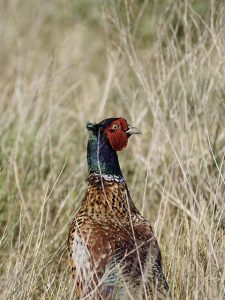 Having received a licence, hunters still need to register with their local hunting club each season to validate the licence and pay the annual subscription fees, or Redevance Cynégétique, which vary depending on the type of hunting you want to take up – local or national, small game (rabbit, hare, pheasant, pigeon, quail and partridge) or big game (deer, wild boar and mountain goats). There are also shorter permits available for three or nine days. Hunters must carry their permanent hunting licence, seasonal validation and a civil liability insurance certificate with them at all times.
Having received a licence, hunters still need to register with their local hunting club each season to validate the licence and pay the annual subscription fees, or Redevance Cynégétique, which vary depending on the type of hunting you want to take up – local or national, small game (rabbit, hare, pheasant, pigeon, quail and partridge) or big game (deer, wild boar and mountain goats). There are also shorter permits available for three or nine days. Hunters must carry their permanent hunting licence, seasonal validation and a civil liability insurance certificate with them at all times.
Jess Gray takes up her story: “After I received my hunting licence I joined the local hunting association in my village and applied for an annual hunting permit for small game. I had been invited in the previous winters to tag along with friends from the ball trap club and experienced both small and big game, but for me the joy is working with your dog as a team for small game.
“My dog would find what we were looking for (they get to know that we are not interested in magpies or sparrows), put it up, you shoot it and the dog brings it back to you. The dogs enjoy it so much and they actually get fed up and depressed if they don’t find anything. The joy they experience when they have worked with you is so wonderful and of course, we ate everything we shot and they got their share.”
Custodians of the Countryside
Hunting bodies strongly consider themselves to be custodians of the countryside, who respect the environment and report any changing environmental trends, and control certain species while protecting potentially endangered species. They keep a Carnet de Prélèvement Universel listing their kills in order to monitor and sustain species numbers.
Jess Gray agrees. “The truth is, most hunting groups work all year round ensuring there is a breeding and feeding programme and that without hunting we would probably see less game. When I first moved to France I saw a lot more game than I do these days. It wouldn’t be unusual to see a couple of hares on our daily dog walk. These days it’s a rare glimpse.”
Accidents Do Happen
Hunters must wear high-visibility vests, place clear signs that they are hunting in the area, and follow established safety guidelines to maximise security for themselves and for non-hunters using the countryside. Despite all the regulations, however, accidents still happen. “There are increasing numbers of accidents each year,” admits Jess. “Usually hunters to hunters, but also innocent people walking or cycling by – this year someone in their car on the motorway got shot!”
“This is usually big game because a rifle can still kill at several kilometres. With wild boar, hunters follow them – they run very fast – and shoot them in the wide open flat vineyards, so it really is an accident waiting to happen.”
The key for walkers and cyclists to staying safe during the season is to make sure to wear bright clothing, stick to official hiking and cycling routes, and stay alert.
Fitting in The Community
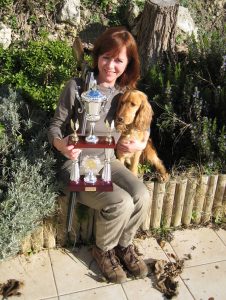 Hunting is, of course, a great way to enjoy the great outdoors, make friends and fit in with the local community.
Hunting is, of course, a great way to enjoy the great outdoors, make friends and fit in with the local community.
“Reasons for hunting for me were to be out in the fresh air, getting exercise, working with my dog, and then finishing the day with drinks and camaraderie with my fellow hunters,” says Jess. “They also do a couple of events in the summer months – such as a big BBQ – where all the wives come along (I brought my husband) and it’s very sociable.”
Jess has since given up hunting, but has fond memories of her incredibly successful years.
“I was always warmly welcomed and, as the only woman, was a bit of a mascot I think. They were all delighted when I started to win the competition at each level and the whole village threw a party for me in the village hall when I was national champion. I represented France in the world championship in Croatia, but made a couple of silly mistakes (my dog Sasha was very angry with me) and came 5th.”
Her remarkable success shows that, while hunting isn’t for everyone, it’s an activity that gets you exercise in the fresh air, helps you make plenty of friends and, ultimately, to become a valued member of the community.
